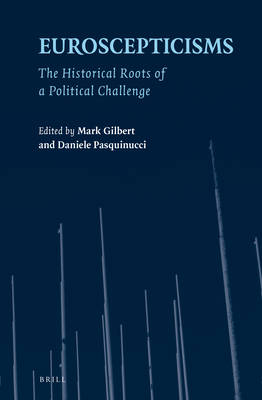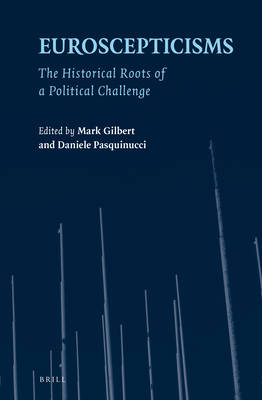
- Afhalen na 1 uur in een winkel met voorraad
- Gratis thuislevering in België vanaf € 30
- Ruim aanbod met 7 miljoen producten
- Afhalen na 1 uur in een winkel met voorraad
- Gratis thuislevering in België vanaf € 30
- Ruim aanbod met 7 miljoen producten
Zoeken
Euroscepticisms
The Historical Roots of a Political Challenge
€ 245,95
+ 491 punten
Omschrijving
Euroscepticism has become a political challenge of imposing size. The belief that the EU would continue, inexorably, to increase its responsibilities, its membership, and its credibility with the electorates of Europe seems like a pipedream. Almost every major European country now has a political party (whether of the left or right) that is openly opposed to the EU's institutions and core policies. However, a political phenomenon on this scale did not spring up, mushroom-like, overnight. Sentiments, attitudes and political standpoints against the European Union have deep roots in the national histories of the various member states. This book assembles a group of scholars from across Europe to investigate the long-term origins and causes of Euroscepticism in an apposite range of EU countries.
Contributors are: Gabriele D'Ottavio, Kira Gartzou-Katsouyanni, Mark Gilbert, Adéla Gjuričová, Simona Guerra, Thorsten Borring Olesen, Daniele Pasquinucci, Emmanuelle Reungoat, Paul Taggart, Antonio Varsori, and Hans Vollaard.
Contributors are: Gabriele D'Ottavio, Kira Gartzou-Katsouyanni, Mark Gilbert, Adéla Gjuričová, Simona Guerra, Thorsten Borring Olesen, Daniele Pasquinucci, Emmanuelle Reungoat, Paul Taggart, Antonio Varsori, and Hans Vollaard.
Specificaties
Betrokkenen
- Uitgeverij:
Inhoud
- Aantal bladzijden:
- 248
- Taal:
- Engels
- Reeks:
- Reeksnummer:
- nr. 36
Eigenschappen
- Productcode (EAN):
- 9789004375345
- Verschijningsdatum:
- 6/02/2020
- Uitvoering:
- Hardcover
- Formaat:
- Genaaid
- Afmetingen:
- 155 mm x 235 mm
- Gewicht:
- 486 g

Alleen bij Standaard Boekhandel
+ 491 punten op je klantenkaart van Standaard Boekhandel
Beoordelingen
We publiceren alleen reviews die voldoen aan de voorwaarden voor reviews. Bekijk onze voorwaarden voor reviews.







